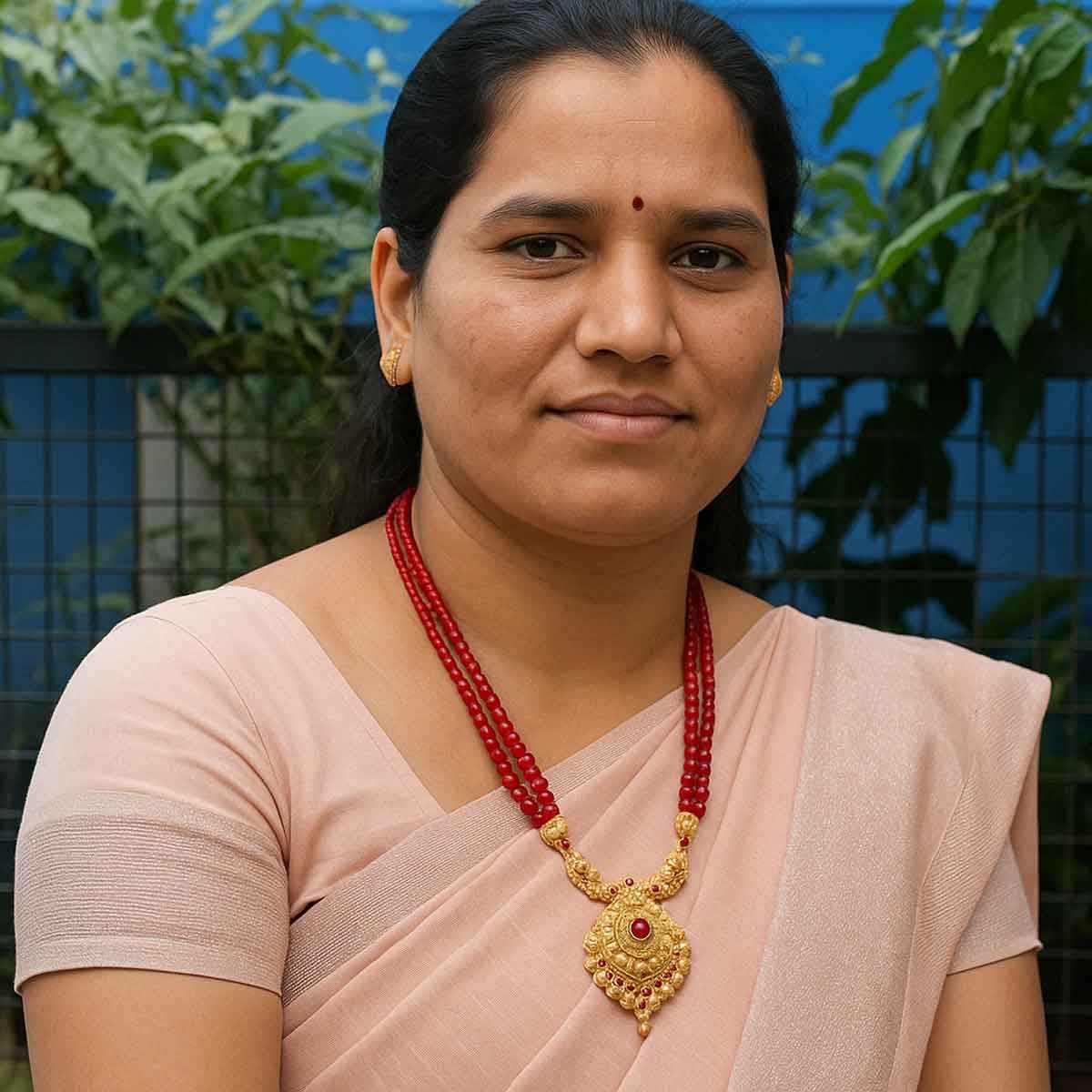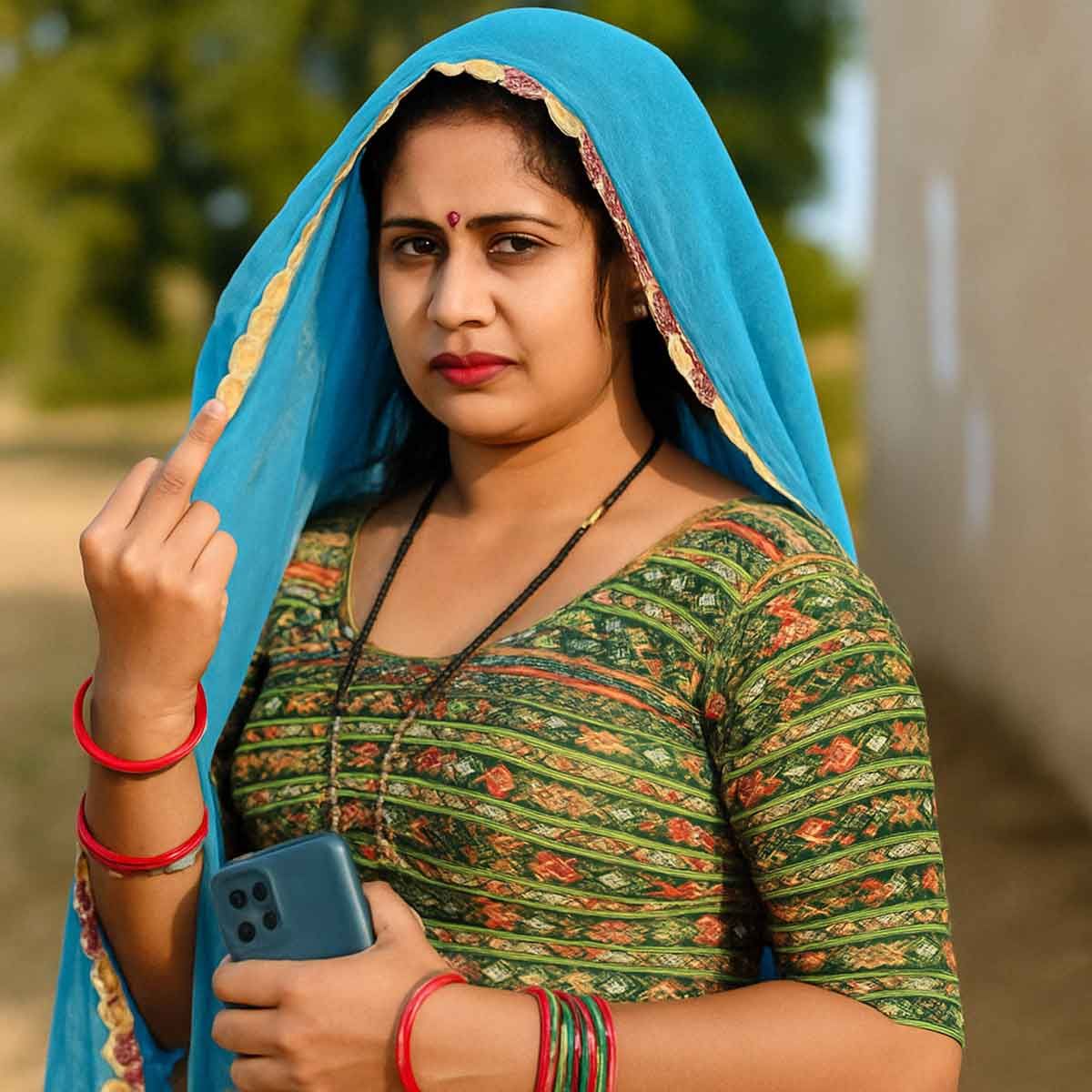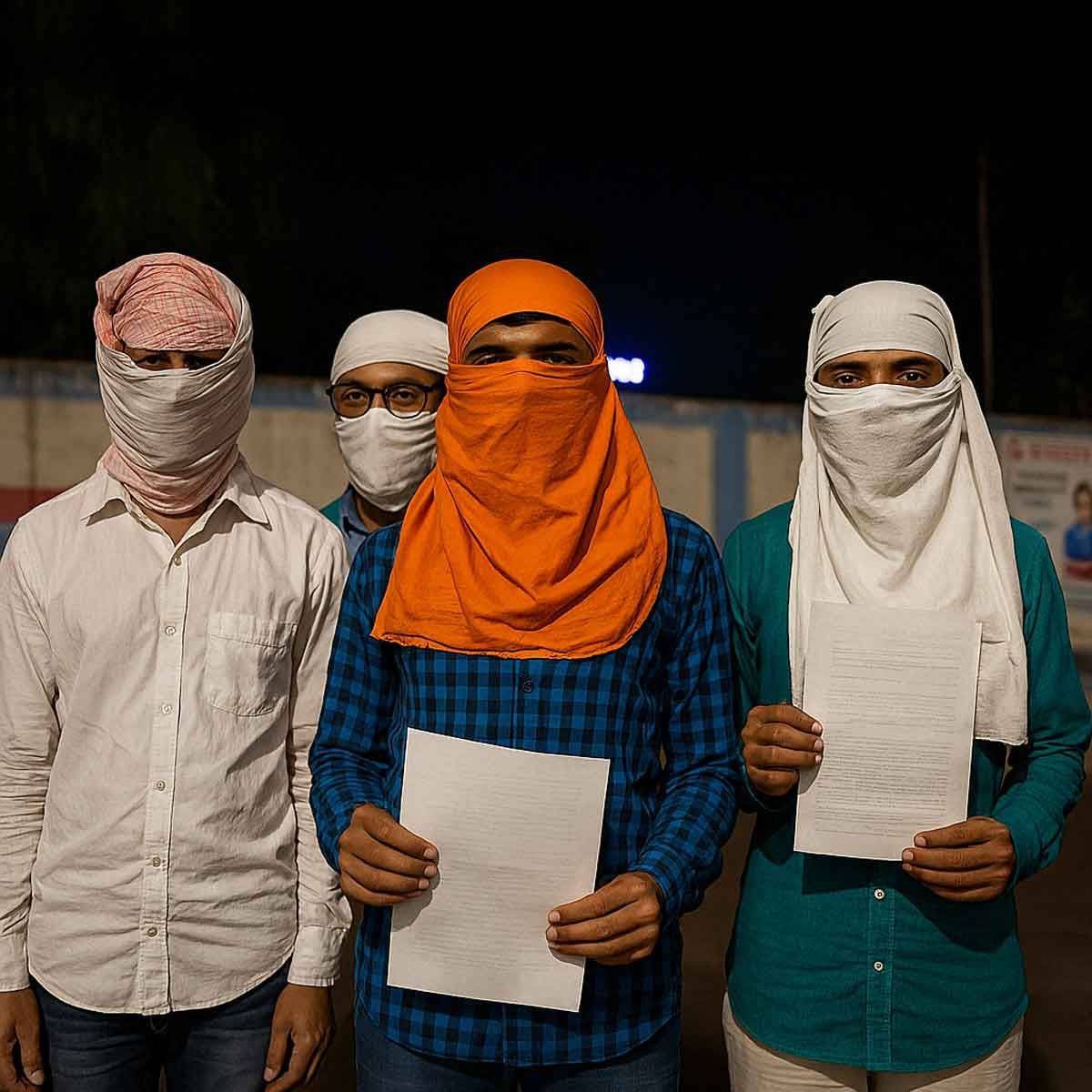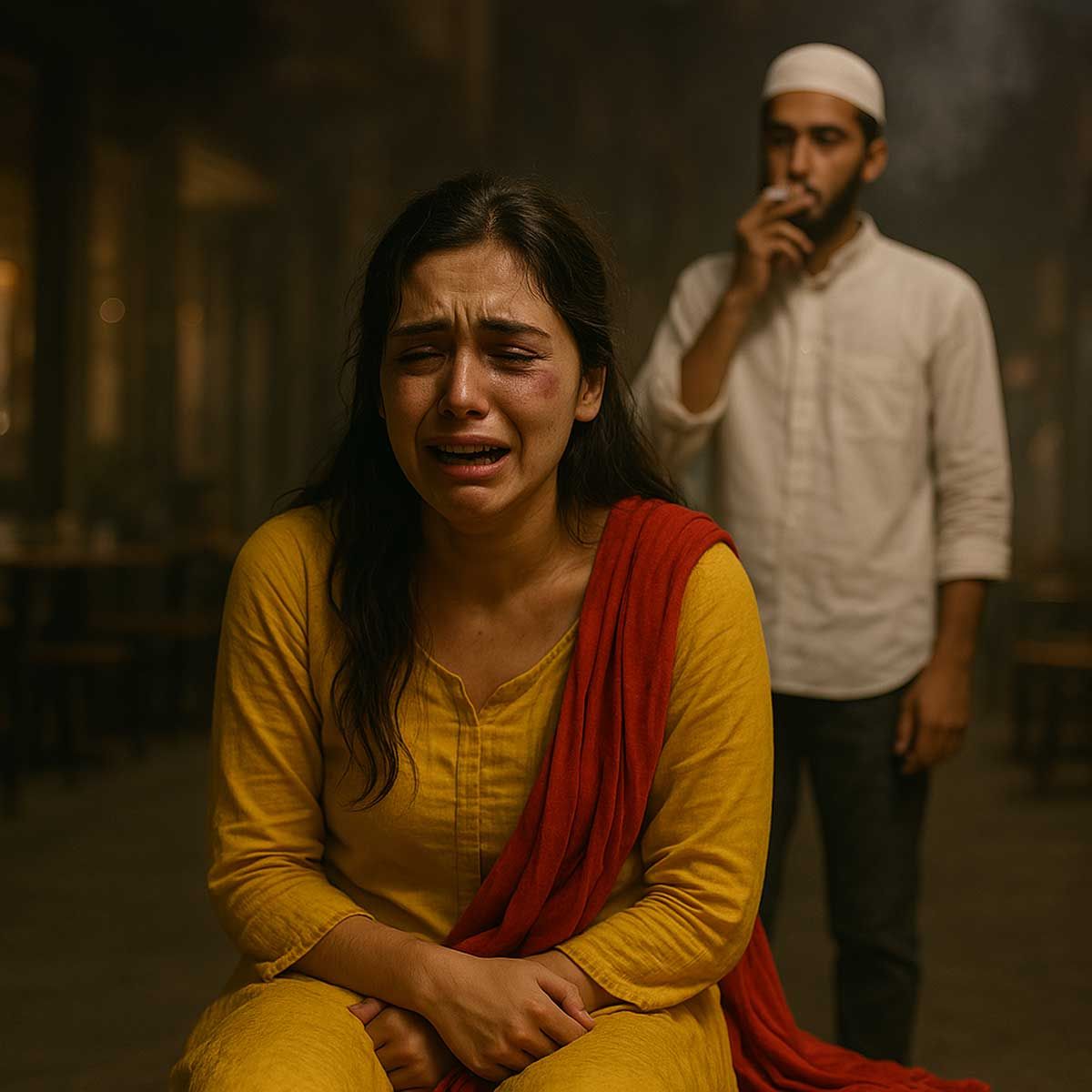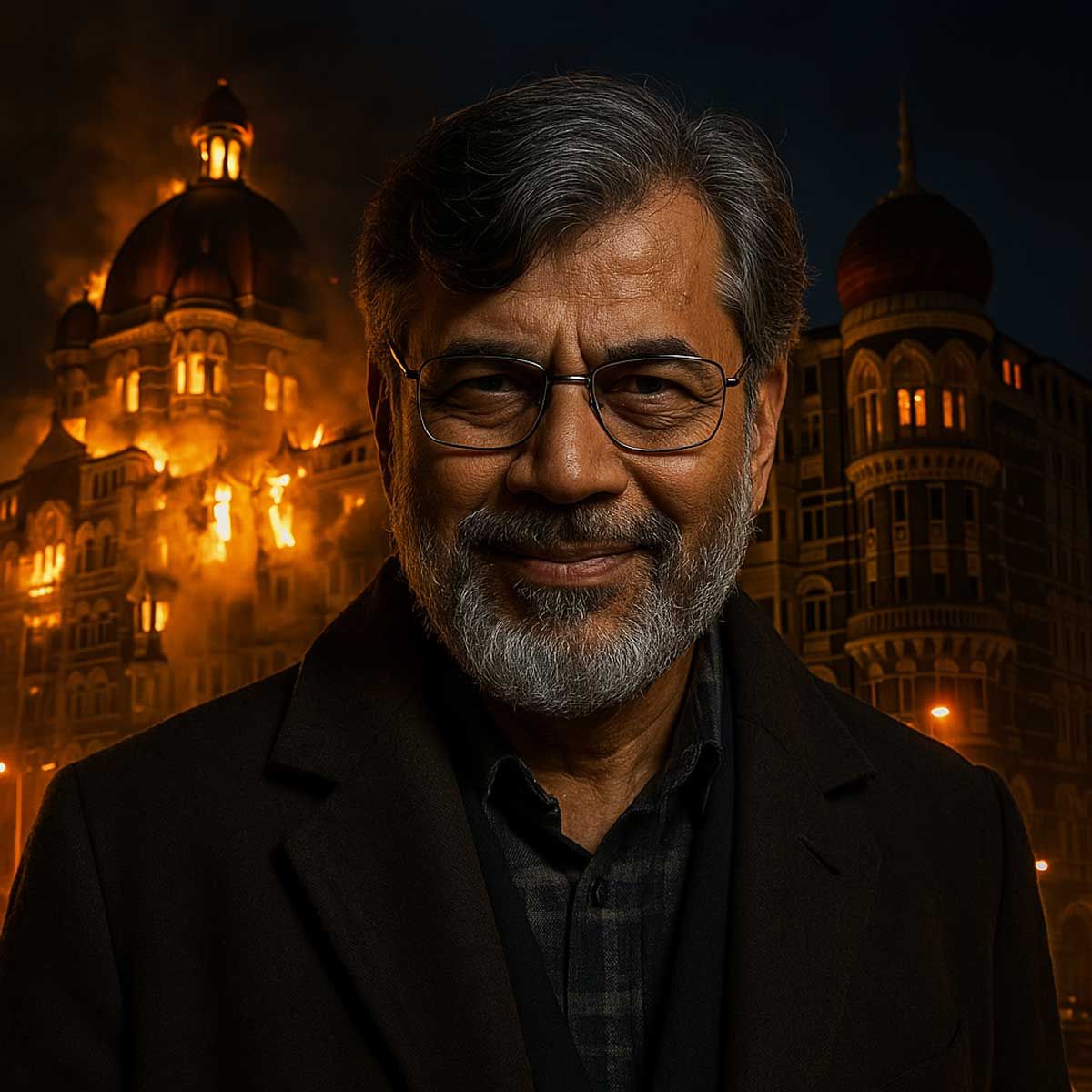More Coverage
Twitter Coverage
Satyaagrah
Written on
Satyaagrah
Written on
Satyaagrah
Written on
Satyaagrah
Written on
Satyaagrah
Written on
JOIN SATYAAGRAH SOCIAL MEDIA
"Let the punishment be equal with the offence": Arrogant Monk Amogh Lila Das banned by ISKCON due to his controversial comments on Swami Vivekananda and Ramakrishna Paramhansa, to remain secluded from public life on Govardhan hills for one month
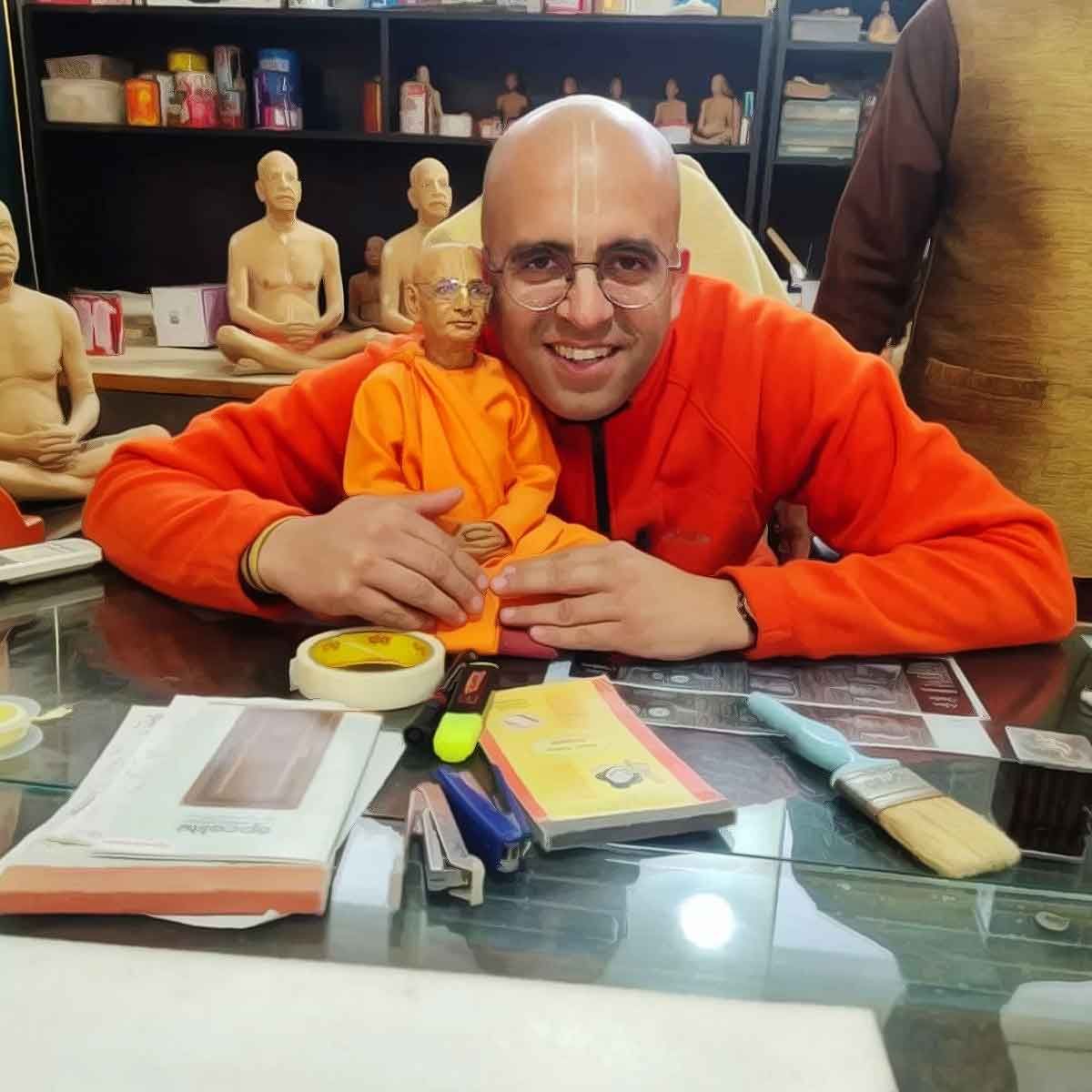
On the 10th of July, a noteworthy development arose within the International Society for Krishna Consciousness (ISKCON), an organization consisting of ardent devotees of Bhagwan Krishna. They imposed a ban on the monk Amogh Lila Das, commonly known as Amogh Lila Prabhu, due to contentious comments he made about Swami Vivekananda and his mentor, Ramakrishna Paramhansa, during one of his recent spiritual discourses, or pravachan. The ban is set to be effective for a one-month duration.
|
ISKCON publicly acknowledged the incident through a press release. They disclosed that Amogh Lila Das, a figure renowned for his spiritual teachings, had recognized his misstep in passing remarks about the respected figures, Swami Vivekananda and Ramakrishna Paramhansa. As a corrective measure, he decided to distance himself from societal interaction for a month, during which time he will seek to rectify his transgressions. Given his popularity, Das's religious discourses are frequently disseminated across various social media platforms.
In their official statement, the Kolkata branch of ISKCON expressed their discomfort and disapproval of Das's "inappropriate" remarks concerning the teachings of the illustrious figures, Sri Sri Ramakrishna Paramahansa Ji and Swami Vivekananda Ji. They lamented the monk's misunderstanding and disrespect towards the profound teachings of these revered personalities.
In light of these remarks, ISKCON took a firm stance by deciding to suspend Amogh Lila Das's association for a period of one month. The decision was duly communicated to Das, who understood the magnitude of his error and humbly sought forgiveness. He resolved to go into "prayaschit" or atonement for the upcoming month in the hills of Govardhan, cutting off his interaction with the public sphere promptly.
ISKCON's statement pointed out that Das's comments, which chiefly targeted the dietary habits of the revered figures, were not just disrespectful but also revealed a significant lack of understanding and awareness about the multitude of spiritual paths and personal choices.
The statement further emphasized, "Such behavior severely undermines the cornerstone principles of mutual respect, religious tolerance, and harmony, all of which are crucial for nurturing a peaceful society. Sri Sri Ramakrishna Paramahansa, a highly esteemed saint and mystic, devoted his life to the quest for spiritual enlightenment. His teachings and practices have left an indelible mark on the spiritual fabric of India and the world. Recognizing and respecting the variety in spiritual beliefs, practices, and choices is a necessity. Mutual respect and tolerance form the backbone of a harmonious society, fostering an environment where people of diverse faiths and backgrounds can coexist in peace."
Furthermore, ISKCON made it clear that Das's comments did not reflect the values and teachings promoted by the organization. They stated, "Our organization has consistently championed harmony, respect, and understanding across all spiritual paths and traditions. We unequivocally condemn any display of disrespect or intolerance towards other religious beliefs and practices."
|
Remarks by Amogh Lila Das
During one of his recent spiritual discourses, or pravachans, Amogh Lila Das expressed some disputable comments regarding the actions of Swami Vivekananda. He criticized the historical figure's dietary choice, notably the consumption of fish. Das raised a moral question on whether a virtuous individual would partake in eating something that results in animal harm. He argued, "Can a person of high moral character justify eating fish? After all, a fish, too, experiences pain. Can a virtuous individual therefore still eat fish?"
Das also presented his views on a well-known quote by Swami Vivekananda, where he advised to "Water an eggplant plant instead of Tulsi" and to "Play football instead of reading the Gita." Das suggested that, while he would respectfully acknowledge Swami Vivekananda's presence if he were alive today, he believes it is also essential to highlight and question any perceived inconsistencies in Swami Vivekananda's teachings.
Furthermore, Das critiqued the idea of prioritizing the watering of an eggplant plant over the holy Tulsi. He proposed a more inclusive approach, saying, "Water both plants. Prepare a meal using the eggplant and offer it to God with a Tulsi leaf before consuming it. This way, we can accomplish two objectives." Here, the 'two objectives' he refers to are nourishing the body and progressing on the spiritual path.
The controversy revolves around a specific quote from Swami Vivekananda, where he seemingly advocates playing football over reading the holy text, the Gita. However, this quote was taken out of its broader context. Presenting only a fragment of the original statement doesn't accurately reflect Vivekananda's intended message. Unfortunately, this often results in confusion among his followers as they grapple with the intended meaning of Swami Vivekananda's 'Football instead of Gita' statement. Understanding the original narrative from which this statement arises is crucial to interpreting it correctly.
This statement originates from an interaction between Swami Vivekananda and Acharya Satyendra Banerjee, who had expressed a wish to study the Gita under Swami Vivekananda's guidance. Swamiji, in response, told him that before they could discuss the Gita, Banerjee must first play football for six months and serve the underprivileged.
Banerjee, confused, questioned why he should play football to gain knowledge of a religious text like the Gita. Swami Vivekananda explained, "The Gita is a sacred text for the brave and the renounced. Therefore, only those filled with courage and a spirit of service can truly comprehend the profound wisdom within the Gita’s esoteric verses."
After adhering to Swamiji's advice for six months, Banerjee returned to Swami Vivekananda and was then imparted with the knowledge of the Gita. The crux of Swamiji's advice to play football underscores the idea that a lethargic body cannot house dynamic thoughts. Reflecting on our daily routines, how often do we exert ourselves physically until we perspire? How can an individual, who neglects even his basic physical well-being, aspire to gain knowledge that transcends the physical realm?
|
Swami Vivekananda was misquoted by ISCKON founder
Swami Vivekananda's words have been subject to misinterpretation, including by the founder of ISKCON, Shri Prabhupada. During a morning walk conversation in December 1975, Shri Prabhupada, Seavanananda, and Dr. Patel discussed a slogan displayed on an arch at the Ramakrishna Mission School in Madras. Positioned near a football field, the slogan read, "The playing of football will bring one closer to heaven than the study of the Gītā." This quote was attributed to Swami Vivekananda, leading to a discussion about his teachings.
They also discussed Vivekananda's teachings about the importance of practicality in life, symbolized by his advice to plant a Brinjal tree instead of a Tulsi tree. The Brinjal tree, unlike the Tulsi, bears fruit that can be used for sustenance, thus highlighting the importance of practical actions over mere ritualistic practices.
However, the question arises: who is at fault for the misinterpretation of Vivekananda's words? Is it Shri Prabhupada and his followers who may have taken Vivekananda's teachings out of context? Or is it the individuals at the Ramakrishna Mission who displayed his quote without providing the necessary context?
It's crucial to remember that Swami Vivekananda's teachings were profound and multifaceted, often requiring a nuanced understanding. His words were intended to inspire practical spirituality and action, not to devalue religious texts or practices. Therefore, any interpretation of his teachings should be done with a comprehensive understanding of his philosophy.
Explanation of the quote in Swamiji’s own words
Swami Vivekananda's teachings emphasize the importance of physical strength and vitality as a foundation for spiritual growth. He advises, "First of all, our young men must be strong. Religion will come afterwards. Be strong, my young friends; that is my advice to you. You will be nearer to Heaven through football than through the study of the Gita." These words, while bold, are not a dismissal of religious study but rather an encouragement to cultivate physical strength as a means to better understand spiritual teachings.
Swami Vivekananda's teachings underscore the importance of a healthy body for the practice of 'Karma Yoga', as outlined by Lord Krishna in the Gita. He believed that a robust physique would enable one to better comprehend the wisdom of the Gita, the might of Krishna, and the glory of the Atman. He asserted, "You will understand the Upanishads better and the glory of the Atman when your body stands firm upon your feet, and you feel like a man."
However, these teachings have often been misinterpreted or taken out of context. Individuals like Joy Bhattacharya have been known to challenge Swami Vivekananda's ideals, while others, such as Ananya Kamboj and Shaji Prabhakaran, have been accused of using his quotes without providing the necessary context or accurately conveying his original intent.
This misinterpretation has led to controversies, such as the tampering with Swami Vivekananda's statue at Jawaharlal Nehru University (JNU). Critics argue that such actions reflect a disregard for Swami Vivekananda's teachings and an endorsement of violence and hatred, which are contrary to his philosophy of strength, unity, and spiritual growth.
Who is Amogh Lila Das?
Amogh Lila Das, born as Ashish Arora, is a well-known spiritual leader and motivational speaker associated with the International Society for Krishna Consciousness (ISKCON). His journey from a software engineer to a dedicated monk is a testament to his deep spiritual calling and commitment to the teachings of Lord Krishna.
Born into a religious family in Lucknow, Uttar Pradesh, Ashish was drawn to spirituality from a young age. His spiritual quest began in earnest in 2000 when he left home in search of God while still in high school. However, he returned to complete his education, earning a degree in software engineering.
After graduating in 2004, Ashish joined a US-based multinational corporation, marking the start of his corporate career. Despite his professional success, his spiritual calling remained strong. In 2010, at the age of 29, he decided to leave his corporate life behind and dedicate himself to spiritual pursuits.
He became a Hare Krishna Brahmachari, a celibate monk, and joined ISKCON. He adopted the name Amogh Lila Das and began his new life dedicated to the service of Lord Krishna. He served as the Vice President of the ISKCON Temple in Dwarka, Delhi, where he was responsible for overseeing the temple's activities and programs.
Amogh Lila Das is known for his deep knowledge of the Bhagavad Gita and other Hindu scriptures. He is a popular speaker and has delivered numerous lectures on spirituality, both in India and abroad. His teachings emphasize the importance of devotion to Lord Krishna and adherence to the principles of Dharma.
Despite his spiritual commitments, Amogh Lila Das maintains a connection with the modern world. He uses social media platforms to reach out to a wider audience and share his spiritual insights. His teachings have inspired many individuals to explore spirituality and seek a deeper understanding of life's purpose.
However, his journey has not been without controversy. He has been involved in several controversies, including making controversial remarks about Swami Vivekananda and Ramakrishna Paramahansa. His interpretation of their teachings drew criticism, leading to his temporary ban from ISKCON.
 Support Us
Support Us
Satyagraha was born from the heart of our land, with an undying aim to unveil the true essence of Bharat. It seeks to illuminate the hidden tales of our valiant freedom fighters and the rich chronicles that haven't yet sung their complete melody in the mainstream.
While platforms like NDTV and 'The Wire' effortlessly garner funds under the banner of safeguarding democracy, we at Satyagraha walk a different path. Our strength and resonance come from you. In this journey to weave a stronger Bharat, every little contribution amplifies our voice. Let's come together, contribute as you can, and champion the true spirit of our nation.
 |  |  |
| ICICI Bank of Satyaagrah | Razorpay Bank of Satyaagrah | PayPal Bank of Satyaagrah - For International Payments |
If all above doesn't work, then try the LINK below:
Please share the article on other platforms
DISCLAIMER: The author is solely responsible for the views expressed in this article. The author carries the responsibility for citing and/or licensing of images utilized within the text. The website also frequently uses non-commercial images for representational purposes only in line with the article. We are not responsible for the authenticity of such images. If some images have a copyright issue, we request the person/entity to contact us at This email address is being protected from spambots. You need JavaScript enabled to view it. and we will take the necessary actions to resolve the issue.
Related Articles
- "My Favourite Son, My Deepest Sorrow": 73-year-old mother, shattered by brutality from the son she raised to be a lawyer, CCTV reveals the victim’s grandson poured water on her mattress and then complained to his parents that she had urinated on the bed
- Sehaj Arora, Kulhad Pizza owner, confronts a damaging video, pleading with the public over the trauma inflicted on his family, as accusation of AI morphing arise, Jalandhar police pinpoint a revenge-driven ex-employee, Soniya, behind the alleged blackmail
- "Teesta Setalvad exploited emotions of Zakia Jafri", said Supreme Court in its judgment: Gujarat ATS takes Teesta Setalvad into custody, even the affidavits of the victims were signed by the NGOs, things were fabricated this way
- "Chaos Connoisseur": Hindu activist & BJP leader Raja Singh stands strong amidst controversial attacks by Teesta Setalvad, with Telangana polls approaching, Setalvad complaint to the Election Commission sparks debate on political motivations and fairness
- NMA received outrage from Netizens for asking ASI to remove Ganesh idols from Qutub Minar complex to National Museum as it will remove the big evidence of Islamist vandalism: Ganesha is the prime god of Hinduism
- The power of Sanatana Dharma and Fact Analysis of the Supernatural Fire Yogi of Tanjore
- "In every empire's fall, a lesson is whispered": The enigmatic tale of Subrata Roy and the Sahara Empire, from ambitious business ventures to the infamous Rs 24,000 crore scam and the decisive steps towards redressal and justice for millions of investors
- Exclusive Report: Instead of lambasting police indifference and Monstrosity on Hindus, Chhattisgarh Congress MLAs condemn Hindus for boycotting Muslims
- Exasperated with the fanatical conversion and discrimination, Hindus demonstrated against Christian school in MP
- "I trust you": In Punjab, a gym owner's dream of a safe future for his family was cruelly shattered when, upon returning from Qatar, he was shot in his sleep; his life cut short in a piercing betrayal, with his wife arrested for orchestrating the murder
- Christian fundamentalist Charles Dickens who hated Hindus and Bharat with a vengeance bordering to the insanity – quite like another British hero Winston Churchill
- To encourage inclusivity, eight short films about same-sex relationships will be screened in Kolkata classrooms, including one on male escort
- How Africa’s traditional religions were exterminated by Islam and Christianity
- A revolutionist freedom fighter who the British Raj framed for murder
- "A guilty soul shouts in whispers": In a dramatic legal twist, Cash for queries scam takes a startling turn as TMC's Mahua Moitra withdraws her defamation case against media amidst allegations, setting the stage for a high-stakes political showdown















